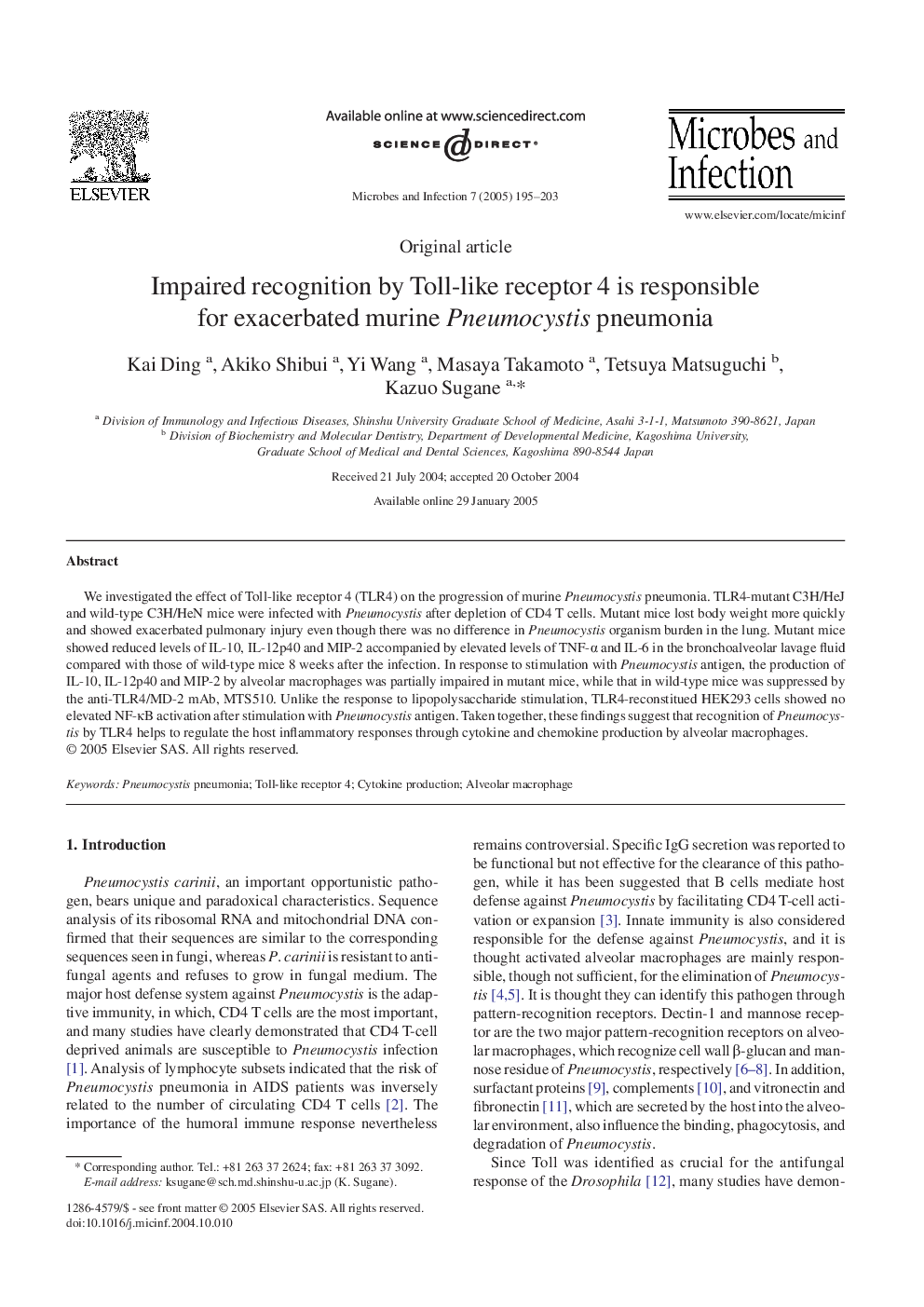| Article ID | Journal | Published Year | Pages | File Type |
|---|---|---|---|---|
| 9283021 | Microbes and Infection | 2005 | 9 Pages |
Abstract
We investigated the effect of Toll-like receptor 4 (TLR4) on the progression of murine Pneumocystis pneumonia. TLR4-mutant C3H/HeJ and wild-type C3H/HeN mice were infected with Pneumocystis after depletion of CD4 T cells. Mutant mice lost body weight more quickly and showed exacerbated pulmonary injury even though there was no difference in Pneumocystis organism burden in the lung. Mutant mice showed reduced levels of IL-10, IL-12p40 and MIP-2 accompanied by elevated levels of TNF-α and IL-6 in the bronchoalveolar lavage fluid compared with those of wild-type mice 8 weeks after the infection. In response to stimulation with Pneumocystis antigen, the production of IL-10, IL-12p40 and MIP-2 by alveolar macrophages was partially impaired in mutant mice, while that in wild-type mice was suppressed by the anti-TLR4/MD-2 mAb, MTS510. Unlike the response to lipopolysaccharide stimulation, TLR4-reconstitued HEK293 cells showed no elevated NF-κB activation after stimulation with Pneumocystis antigen. Taken together, these findings suggest that recognition of Pneumocystis by TLR4 helps to regulate the host inflammatory responses through cytokine and chemokine production by alveolar macrophages.
Related Topics
Life Sciences
Immunology and Microbiology
Immunology
Authors
Kai Ding, Akiko Shibui, Yi Wang, Masaya Takamoto, Tetsuya Matsuguchi, Kazuo Sugane,
